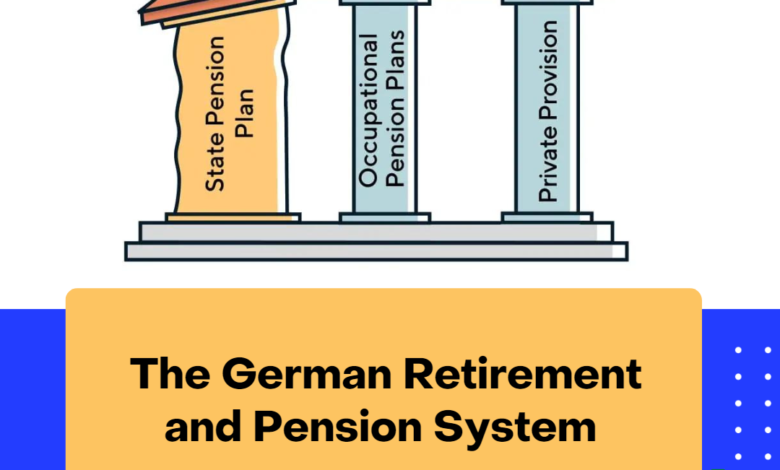The German Retirement and Pension System

The German Retirement and Pension System
Retirement and pension systems are essential for ensuring individuals’ financial security in their post-working years. The German retirement and pension system is widely regarded as one of the most developed and sustainable systems globally. This article explores the German retirement and pension system, how it works, and its strengths and weaknesses.
Three Pillars of the German Retirement & Pension System
The German retirement and pension system consists of three pillars: statutory pension insurance, occupational pension schemes, and private pension provision. Statutory pension insurance forms the foundation, offering a basic pension to individuals who have made contributions throughout their working lives. Occupational pension schemes are additional pension plans provided by employers to their employees. Private pension provision is an optional choice for individuals to save extra for their retirement.
Statutory Pension Insurance: Funding & Eligibility
The German government funds statutory pension insurance through a pay-as-you-go system. Workers contribute 18.6% of their gross salary, with employers also contributing 18.6%. Self-employed individuals contribute the full amount themselves. Contributions are tax-deductible, making it an attractive option for many.
The pension amount depends on an individual’s contributions and the number of years they have paid into the system. It is calculated as a percentage of their average income during their working years. The more years contributed, the higher the pension. However, a minimum of 5 years of contributions is required to qualify for a pension.
Occupational Pension Schemes: Funding & Eligibility
Occupational pension schemes are offered by employers and are funded by both employer and employee contributions. The amount of pension a person receives depends on their contributions during their working years and the performance of the pension fund’s investments. Occupational pension schemes are not mandatory, but many employers offer them as an additional benefit to their employees.
Private Pension Provision: Funding & Eligibility
A private pension provision is an additional voluntary option for individuals to save for their retirement. Private pension schemes can be set up with insurance companies or banks and are funded by the contributions made by the individual. The amount of pension a person receives from a private pension scheme depends on their contributions and the performance of the pension fund’s investments.
Statutory Pension Insurance: Funding & Eligibility
Statutory pension insurance in Germany is funded through a pay-as-you-go system. Workers contribute 18.6% of their gross salary, with employers also contributing 18.6%. Self-employed individuals contribute the full amount themselves. Contributions are tax-deductible, making it an attractive option for many.
The pension amount depends on an individual’s contributions and the number of years they have paid into the system. It is calculated as a percentage of their average income during their working years. The more years contributed, the higher the pension. However, a minimum of 5 years of contributions is required to qualify for a pension.
Weaknesses of the German Retirement & Pension System
The German retirement and pension system has a few weaknesses to consider.
Firstly, the system assumes continuous work and contributions throughout an individual’s career. However, early retirement and an aging population challenge this assumption.
Secondly, the system may not adequately address the evolving nature of work, including the gig economy and self-employment. The pay-as-you-go system in Germany leaves certain individuals with limited access to pension benefits and potential financial insecurity in retirement.
Thirdly, given the rising costs of healthcare and essential services, the current pension levels provided by statutory pension insurance may not be sufficient to cover retirees’ living expenses. This necessitates the reliance on additional income sources like private pensions or personal savings to supplement the statutory pension.
Final Thoughts
The German retirement and pension system is a well-developed and sustainable system that provides a basic pension for everyone who has contributed to the system. The system is based on the principles of social insurance and is flexible enough to cater to individual needs and circumstances. However, it may be necessary to adapt the system to cater to the changing nature of work and the needs of an aging population. Policymakers must ensure that the system remains equitable and provides adequate financial security for all retirees.
Read more at How to abroad
‘Chancenkarte’ or Opportunity Card in Germany Germany
Inflation in March dipped to 7.4%
Want to study in Germany? How To Abroad will help you to achieve academic goals.

